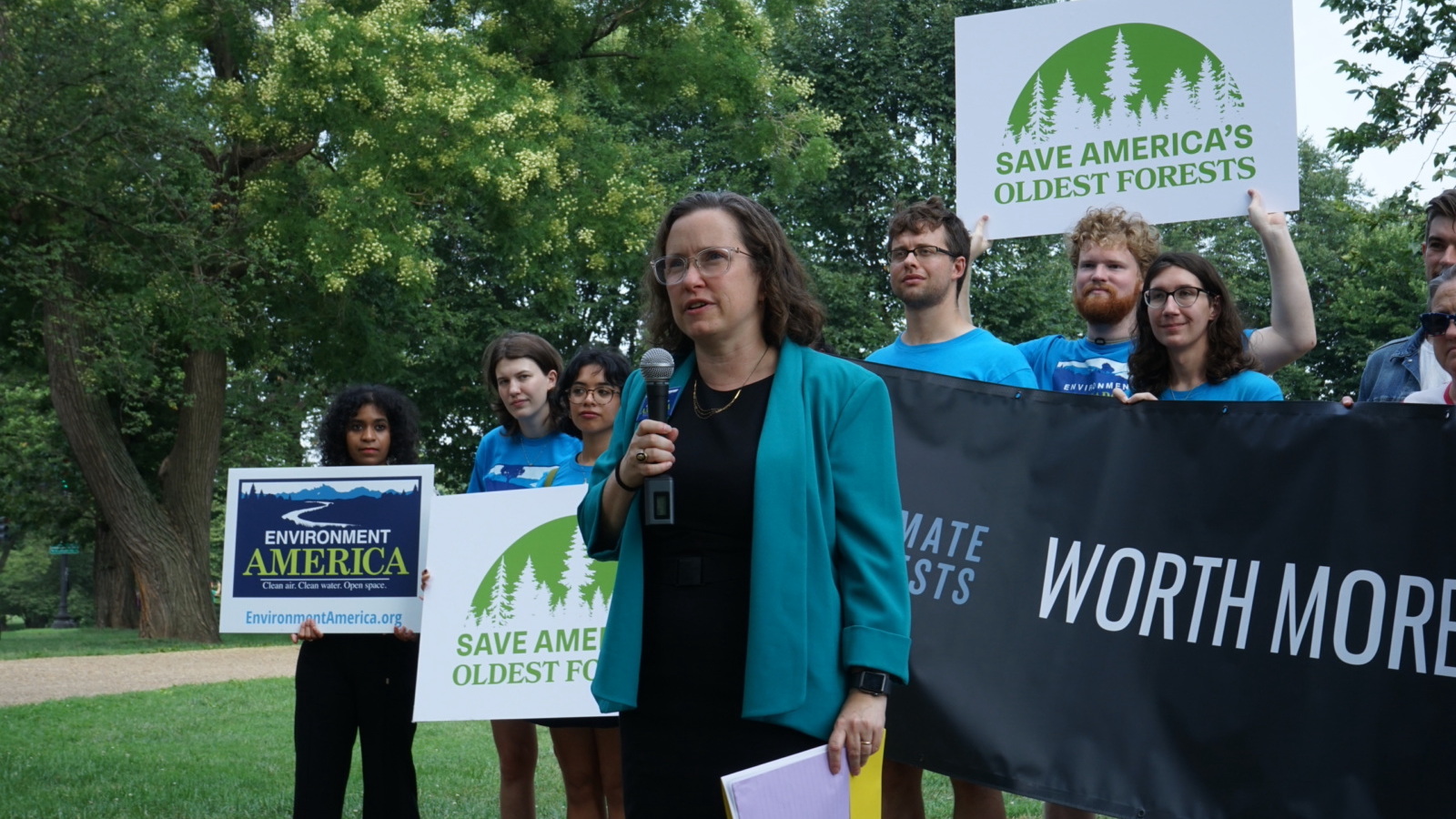
500,000 people call for mature and old-growth forest protections
Activists gathered near Forest Service headquarters in D.C. to deliver comments calling for mature and old-growth forest protections.
Keeping our forests healthy, whole and wild.
The trees that make up our forests are some of the oldest living things on Earth, many of them older than America itself. These forests provide crucial habitat for thousands of species. They provide limitless opportunities for recreation, exploration and wonder. What’s more, our forests absorb and store carbon dioxide, which makes them crucial allies in our race against climate change. Together we can protect our forests from road-building, logging, development and other threats.
Activists gathered near Forest Service headquarters in D.C. to deliver comments calling for mature and old-growth forest protections.
Public comments submitted in support of forest conservation
Across the nation, college students are calling on The Home Depot to protect forests in its supply chain.
Agriculture Secretary Tom Vilsack on Thursday signed a memorandum to clarify the U.S. Forest Service’s direction on climate policy. The memo, "Climate Resilience and Carbon Stewardship of America's National Forests and Grasslands," follows a recent White House executive order highlighting the importance of conserving mature and old-growth forests on federal lands as a climate solution. The memo, which lays out “actions to restore forests, improve resilience, and address the climate crisis”, falls short in meeting the ambition outlined in President Joe Biden’s order on old forests and trees. Secretary Vilsack acknowledges the role that older trees play in absorbing and storing carbon and supporting biodiversity. But he fails to outline a plan for his agency to protect mature and old-growth forests and trees from commercial logging.
The Home Depot has the opportunity to protect our climate, biodiversity and people. Consumers urge the company to step up.
Environment North Carolina, SELC, and dozens of other conservation groups launched an effort Tuesday to focus on protecting mature trees and forests on federal lands that are most critical in the fight against climate change. The Climate Forests campaign is calling on the Biden administration to kick off a new era of climate and forest policy in which trees and forests are valued as key pieces of the climate solution.
